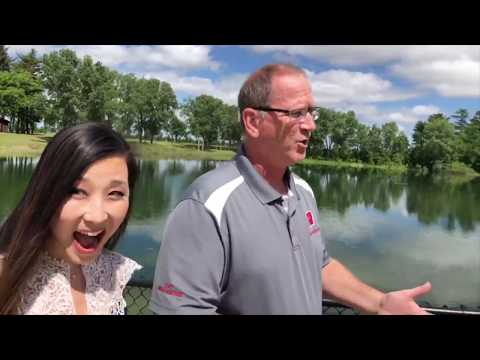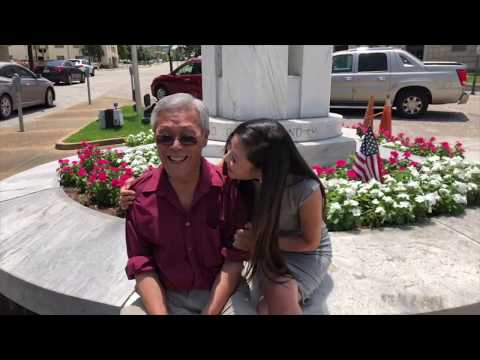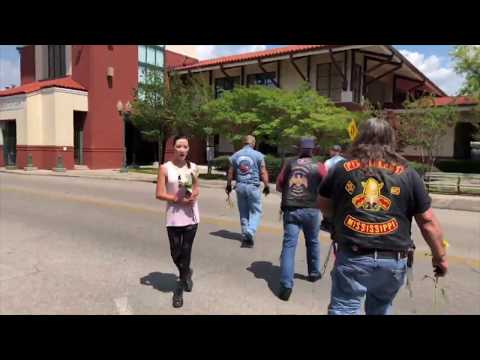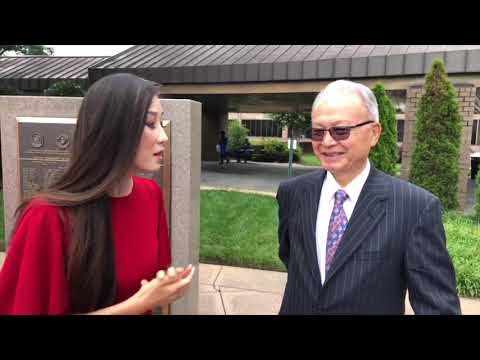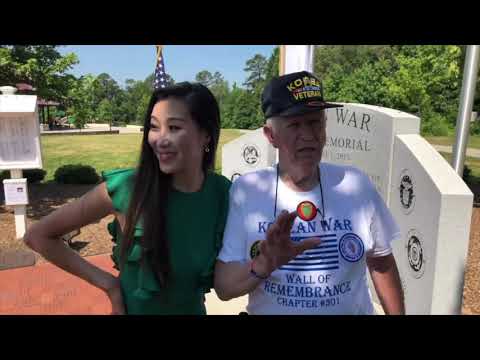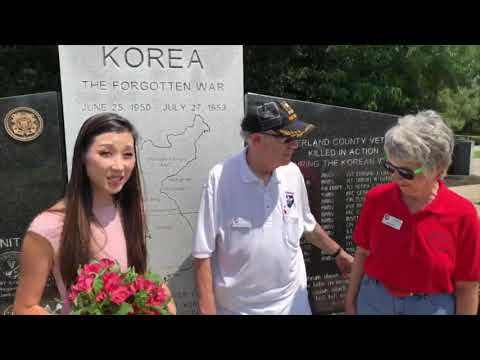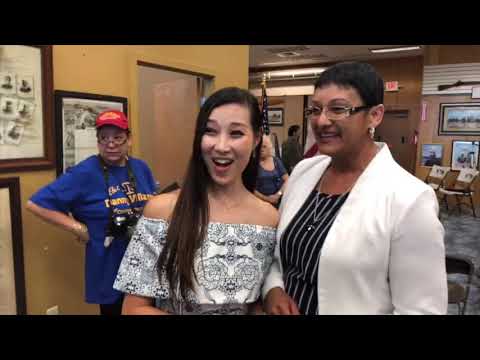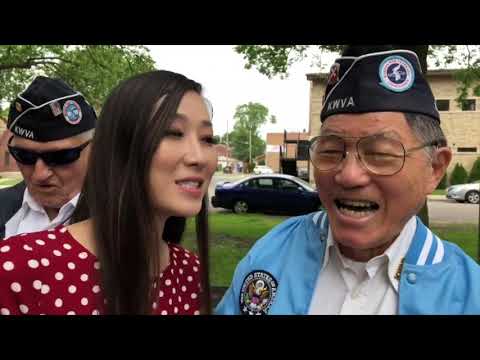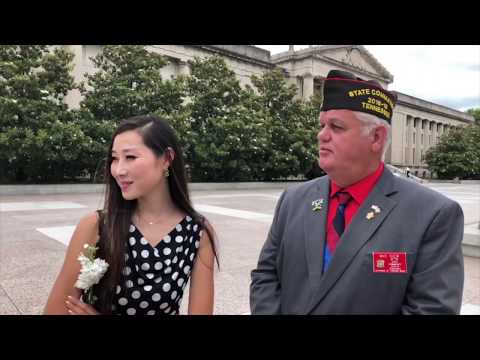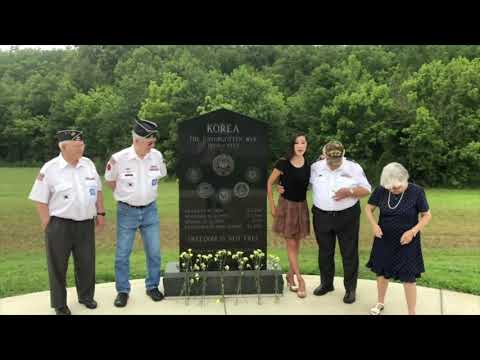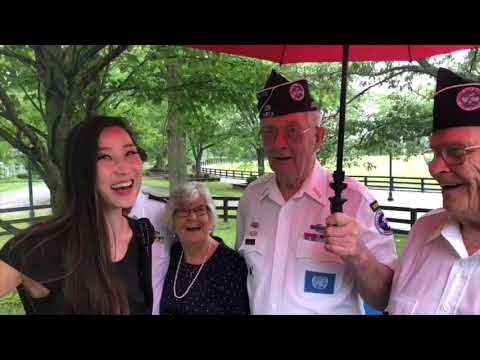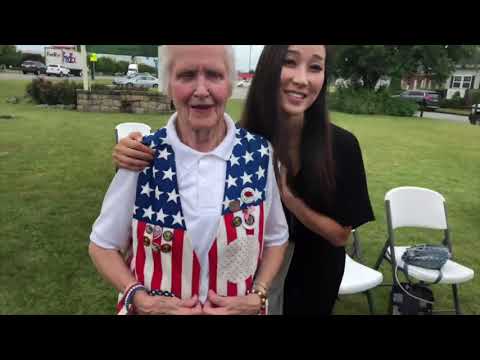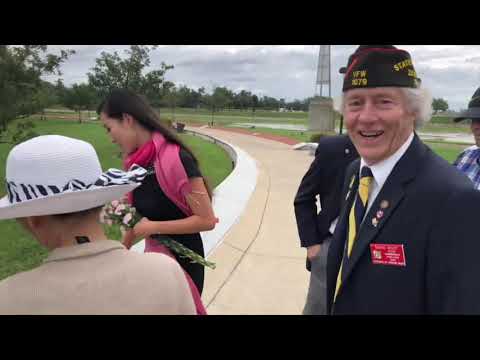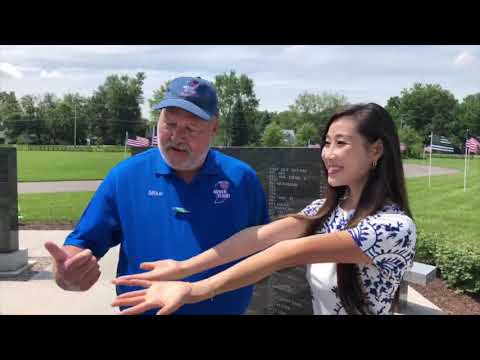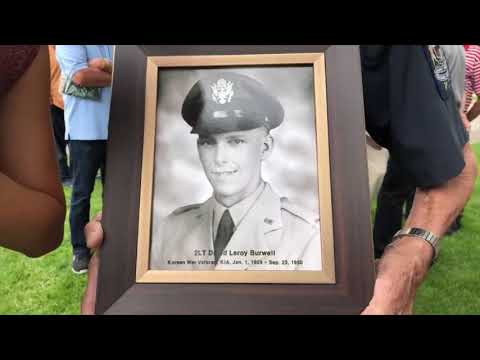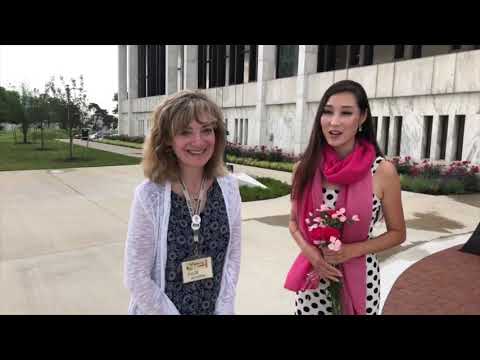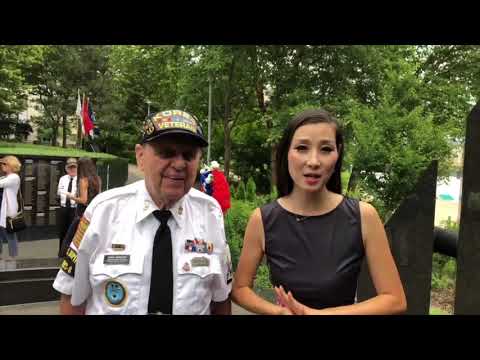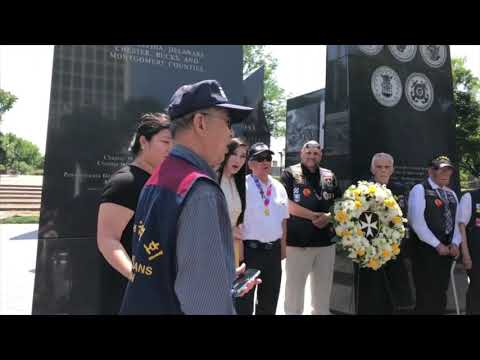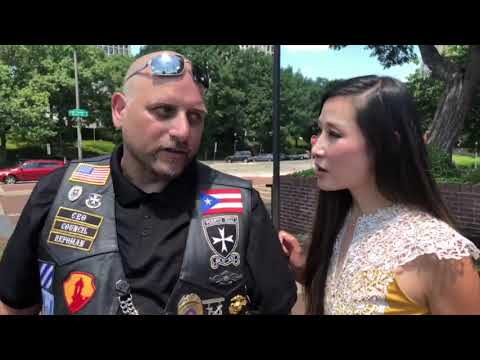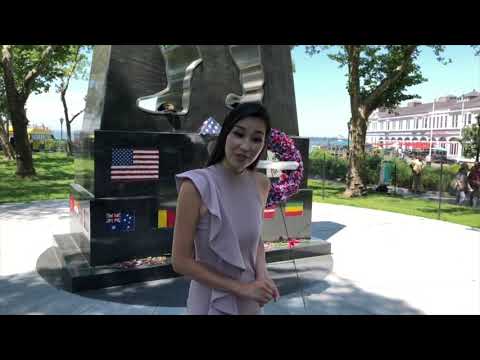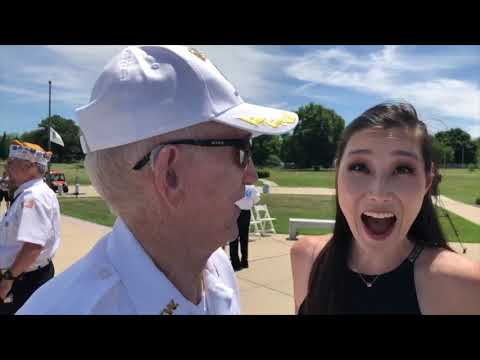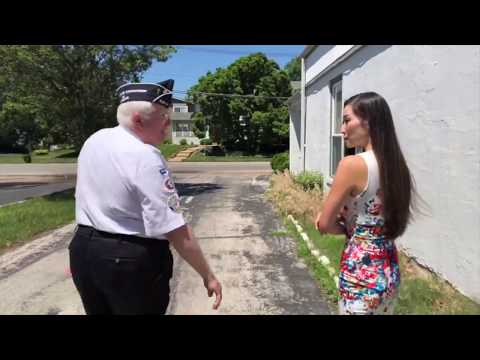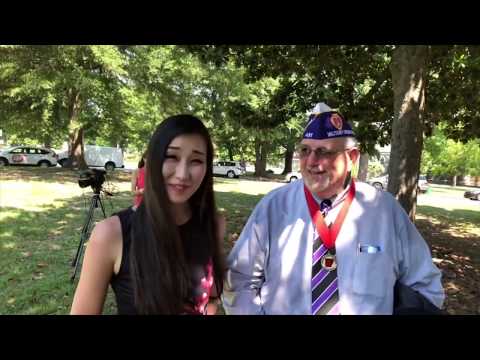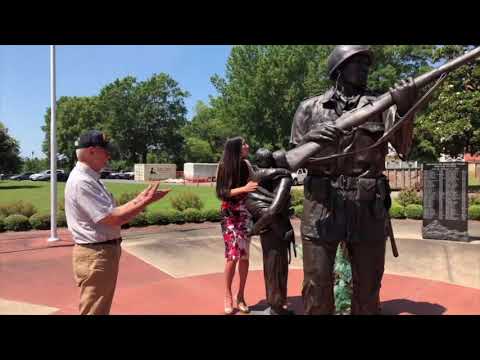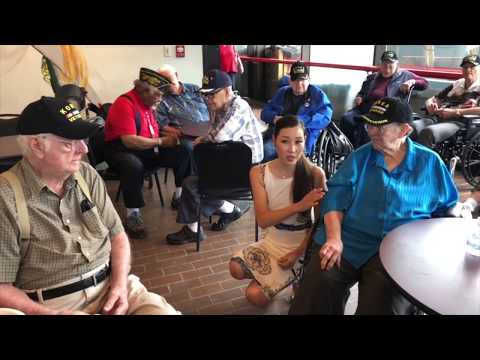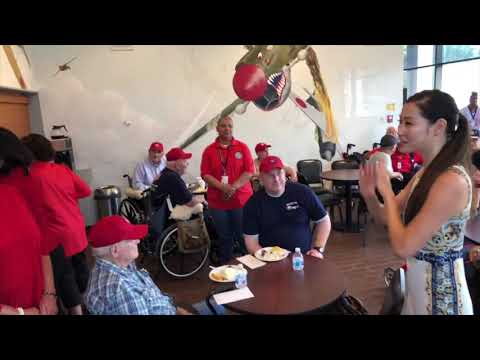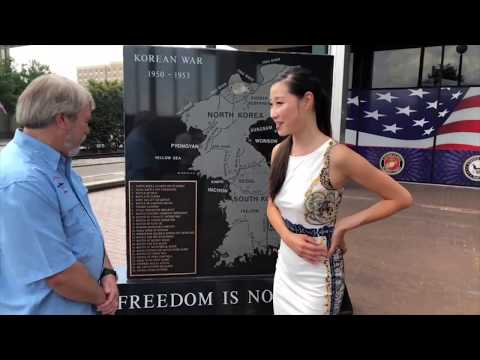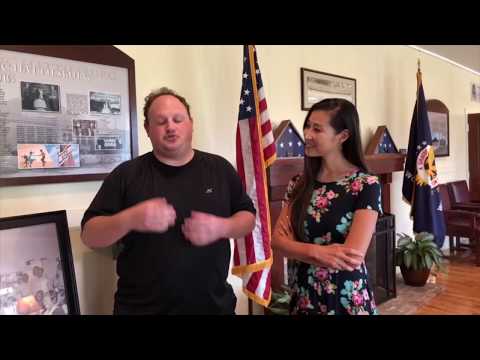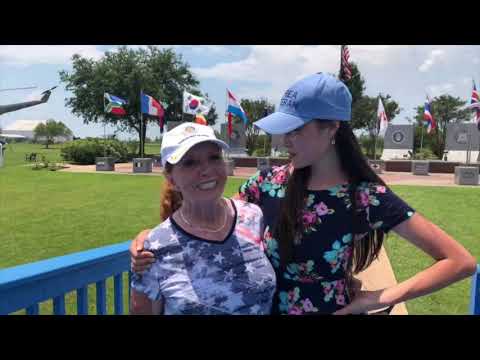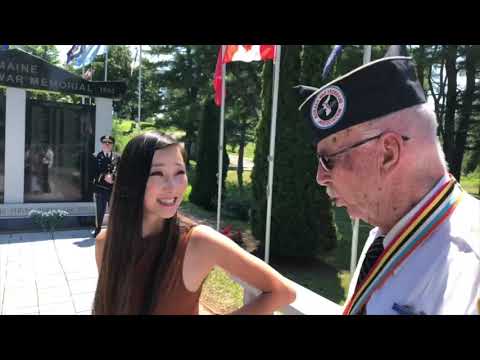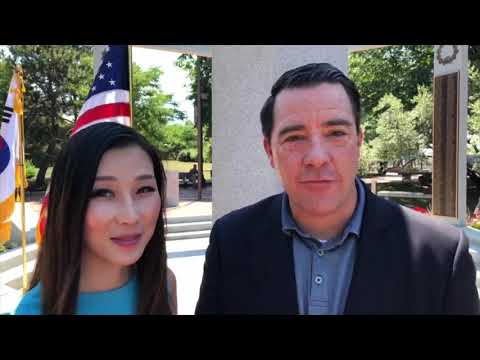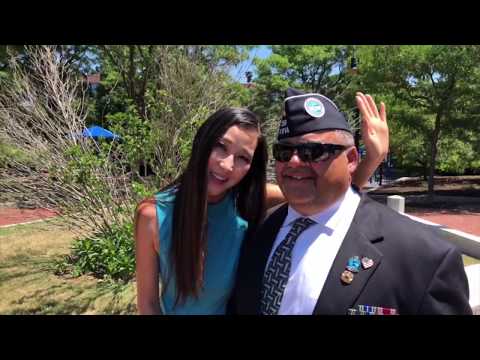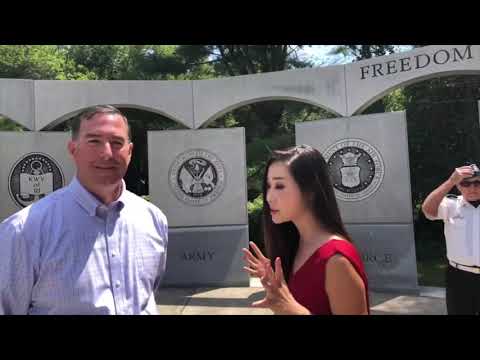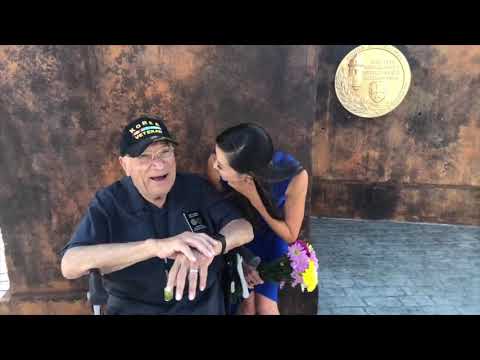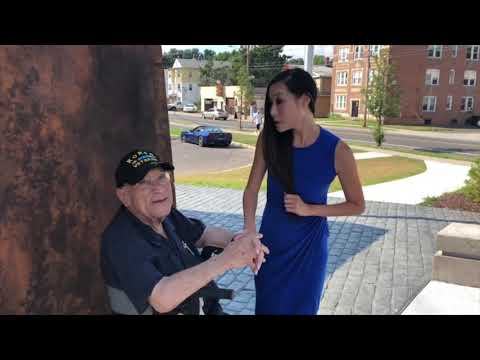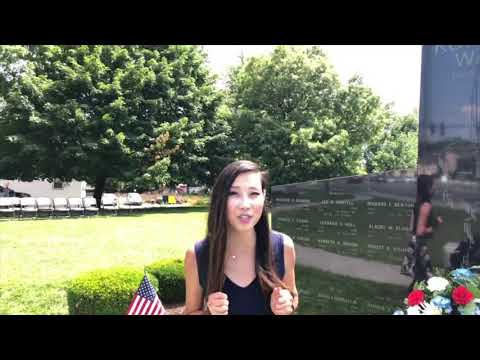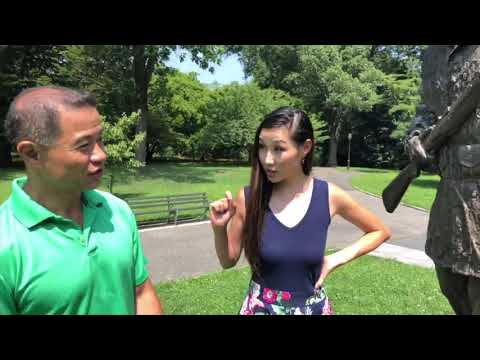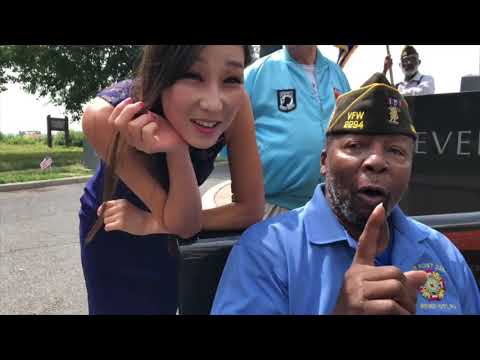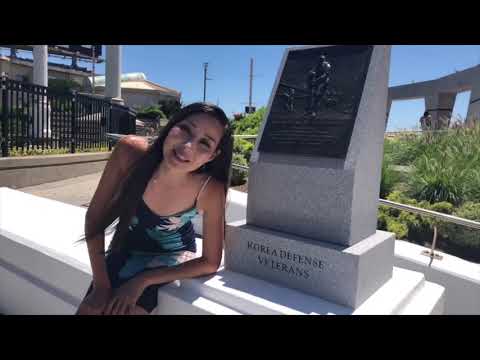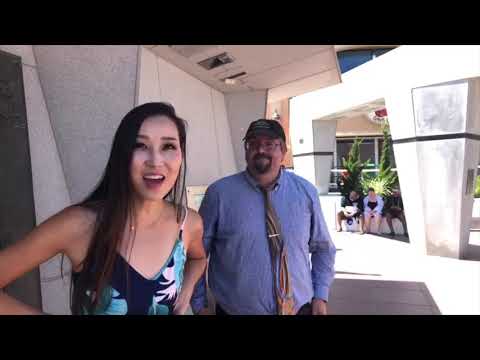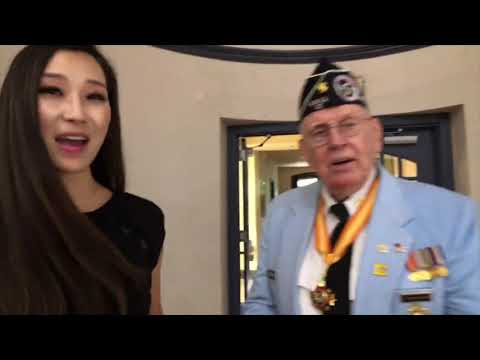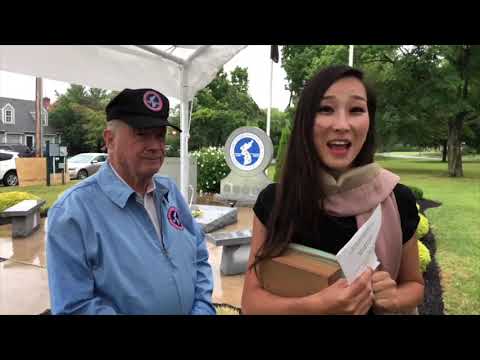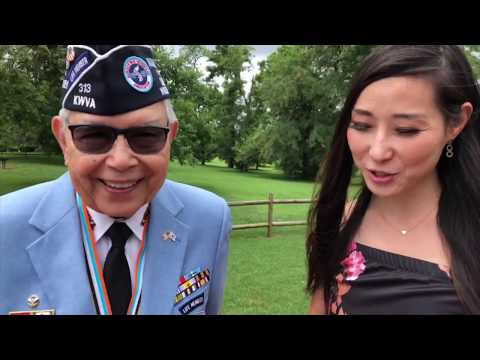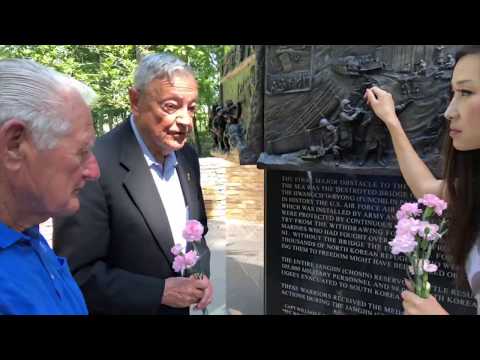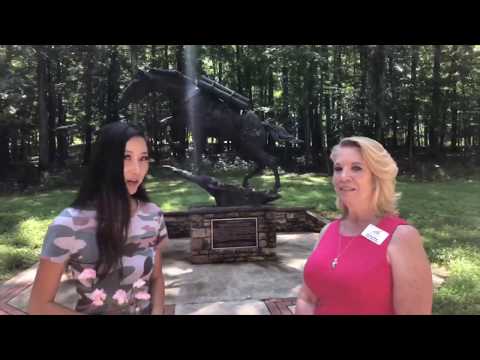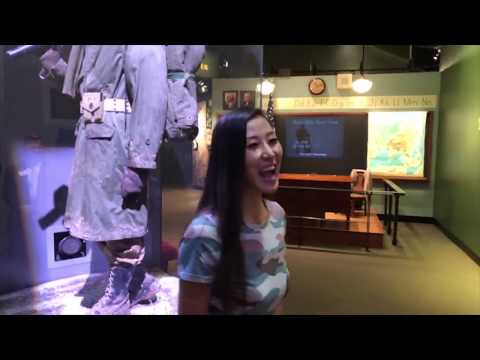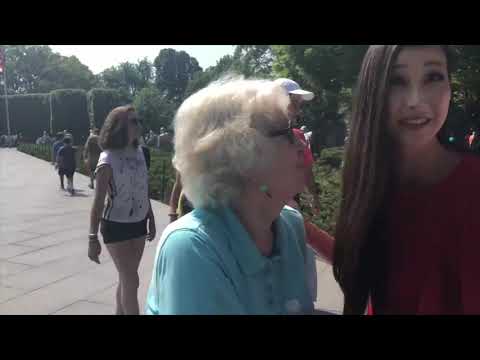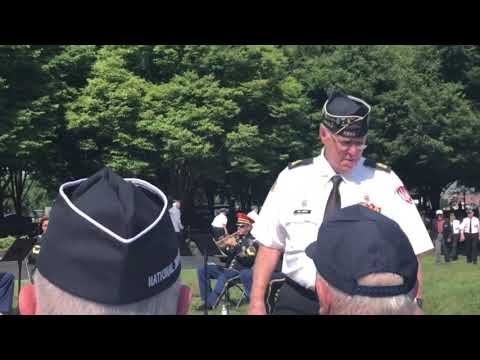Click on different countries and cities to explore Korean War memorials around the world!
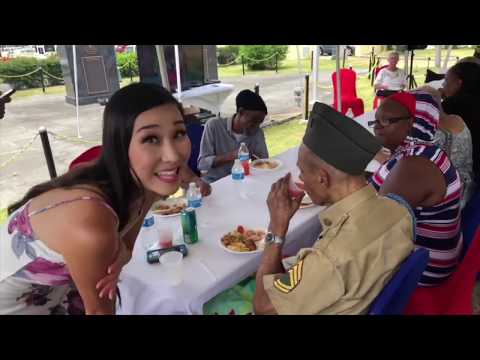
>> Hello, everybody, from Saint Thomas, U.S. Virgin Islands. So you thought that I would go after July 27th. Not really. I’m here in this beautiful island to honor Virgin Islanders who went to fight in Korea. So we just laid a wreath here, and this is the Franklin D Roosevelt Veterans Memorial Park, and while it does not have a Korean War memorial yet, it has a veterans memorial honoring veterans from all five branches. We, of course, laid the wreath here, and I am going to take you to some of my Virgin Islander grandpas, so come on over. Of course, that is the Virgin Islands’ flag, and behind me is the government building. So just to give you a history background, Virgin Islands became part of the U.S. territories in 1917 because, of course, America wanted to ensure that the Caribbean was not going to be under German influence. And it’s a little bit … If you really think, it’s amazing that shortly after Virgin Islanders fought in the Korean War for a country, their newly adopted country, for a country that they didn’t know, Korea. And so here we … Look at this. The Lieutenant Governor was here. Thank you, Lieutenant Governor Potter, who was a veteran himself. Congresswoman …
>> West. West.
>> Representative was here. She came to represent. But … And we just ended the ceremony, so they’re eating lunch, and they’re watching a video about the Korean War. But … Grandpa, can you say hello to the people? To say … These are my grandpas, Virgin Islander grandpas. My grandpa, Larry. Oh, Grandpa Aubrey, perfect!
[ Chatter ]
Well, he says, “Ya,” but …
>> Yeah. Yeah.
>> So Grandpa Aubrey is probably one of the most knowledgeable Korean War veterans that I’ve met and had the honor to meet, and he’s a Virgin Islander. However, he fought with the Borinqueneers. Of course, you all know by then …
>> I assisted them.
>> Yes. You assisted them, but he also has a Congressional Gold Medal because, of course, the Borinqueneers were at war …
>> [INAUDIBLE].
>> Exactly. And could you just as a Virgin Islanders …
>> Yeah.
>> To have participated in this effort to defend freedom, not just for Korea, but halted to communism, spread of communism around the world. What does it mean? What does it mean to you after almost 70 years for me to come here and thank you and just seeing your colleagues?
>> Well, it’s built a different level. What we did, maybe how the people of color in the military to be better treated because they saw that we had discipline. We could follow orders. We were well trained. I was the first person of color accepted to the Southeastern Signal School in Fort Gordon, Georgia, in 1952, and it was very intense course. It was the longest in the [INAUDIBLE] course at the time because 34 weeks long. I was perfectly trained in every type of communication of that time to operate, to repair and restore, and that’s what I did in Korea to help you people.
>> I’m not surprised because he is extremely intelligent, and I’m really serious.
>> I’m just blessed.
>> No. Well, you are.
>> The father has blessed me so much.
>> You are blessed with intelligence, and so thank you for making it … coming here, not just today, but to share with me the stories so that I could pass it on and share with other people, and so that your legacy is not forgotten.
>> Yeah. I always try to remember those who were with me and [INAUDIBLE] that didn’t come home and those who came home and were disregarded and never helped and just fell by the sidelines, many of my friends and [INAUDIBLE]. Nobody helped them. I suppose that’s the cold Korean War. I was blessed. I never killed anyone. I was trained. I helped my fellow men as much as I could, and I loved the military. I loved it. I was drafted, and then I re-enlisted for 3 years.
>> That’s amazing.
>> And it made my life great.
>> That’s amazing.
>> I will never say anything about the military.
>> Mm. Well …
>> Some people have different ideas. Some people have probably a difficult time, but I did, but I survived it. I have a grandson who is in the Marines right now.
>> Wow.
>> And I told him …
>> Semper Fi.
>> … if he’s going to be successful, “You must listen, learn and improvise,” and at times he must become a chameleon.
>> Mm, that’s very good advice, everybody. But just want to stop here and say that he mentioned those who didn’t come home like he did, and that is 78. Okay?
>> But those who came home were never treated well, many, many.
>> We just learned today … I learned today that 700 and almost 90 went from Virgin Islands.
>> Yup.
>> 1950, the population here was 26,700. That’s like …
>> Now remember this was from the three Virgin Islands, not only St. Thomas.
>> Oh, yes. Three islands: St. Thomas …
>> St. Thomas, St. Croix and St. John.
>> And so I’ll be in St. Croix tomorrow.
>> I think the most that actually never came home are from St. Croix.
>> Mm, I’ll be going tomorrow.
>> Again, they used them as cannon fodder. You know what that phrase means?
>> Mm-mm. What does that mean?
>> Cannon fodder is when a leader in the military just wants … He needs someone to die to protect more people.
>> Oh.
>> And they do that quite often. That’s what they did with the 65th Infantry. That’s what McArthur did with the 65th Infantry. He use it as a blocking unit and without just sacrificing them to save maybe the [INAUDIBLE] at the time because of the Korean. These are things that people never talk about.
>> And I do want to just say that, that is why war is something …
>> Senseless.
>> … senseless, and we need to continue to defend people. Ooh, it’s raining, so I’m going to go. I want you to shelter, okay? Thank you so much.
>> You do that. I don’t want you to melt.
>> It’s kind of weird because it’s hot, and it’s raining, and it’s very hot, and it’s raining. But I do want to end with … There’s some Caribbean food back there, and I’m hungry, so I’ll be eating that soon. However … Hey. Where are your two other handsome cousins?
>> Over there. Brothers.
>> Yes. Okay.
>> They get some food also.
>> Okay. Come, come. Okay. Name, please.
>> My name is Bubba Benjamin.
[ Chatter ]
>> Ooh, Benjamins. And?
>> Hello. I’m Marcene Benjamin.
>> Okay. Where’s the other Benjamin?
>> One more Benjamin missing.
>> Why are you guys here? Can you just start with that? So we’re going to come a little closer because it’s so loud back there.
>> We came to support our grandfather.
>> Yeah. Yeah. Yeah.
>> Well, we’ll go over there only because we don’t to block the food. Okay. You came to support your grandpa. Who’s your grandfather?
>> My grandfather is [INAUDIBLE].
>> Okay. Can you honor him by explaining to them why he was here?
>> Well, he fought in Korean War.
>> He fought in the Korean War.
>> He wasn’t even around then. You know what I’m saying?
>> We wasn’t even a thought or anything.
>> He fought for us, and we wasn’t even in existence yet because my mom and dad go back home. He was all the way across the world fighting for America.
>> I know. That’s kind of cool. Do you know … So I called him my grandpa. You heard, right? So technically we’re cousins. Right? Yeah. So I have my new … Ooh. Did you guys do this, red, white and blue?
>> No.
>> Well, I did it.
>> They’re very patriotic. Red, white and blue. Yeah.
>> It wasn’t planned but …
>> My Benjamin cousins. Yes. So thank you for your grandfather’s service, and I hope that you carry for the rest of your life that pride that he served and helped somebody like me to come in existence, not only you, but me, right, and all the Korean people, and we’re very grateful for your grandfather’s service. So I would be remiss if we didn’t show you Mr. Benjamin, so I’m going to take you to him. He doesn’t know I’m coming. Okay. It’s really cool that he has his entire family rolled with him to honor him. Grandpa? Can you just come and wave? Come this way. Sorry to disturb you while you’re eating, but I wanted everybody to see your handsome face because your grandsons just talked about your service in the war and how proud they are.
>> [INAUDIBLE].
>> Mm.
>> [INAUDIBLE].
>> Mm. But I am so glad that you made it back, that you are here, and you have this beautiful family that you raised, who love you and who respect you and are so proud of you as I am grateful to you, so thank you.
[ Chatter ]
And last but not least, look at this. “Proudly we served Virgin Islander Veterans of the Korean War.” Isn’t that awesome? So I just would like to say … I’m going to go this way. I would like to show everybody, ta-da. And give a shout-out to our commander from the American Legion [INAUDIBLE] 90, fearless leader. She called the Lieutenant Governor her younger brother. I said, “Oh, my god. I thought you’re his younger sister.” She looks really good. I’m going to later ask her for her secret, how to keep young.
>> Stay happy.
>> Stay happy. I think so too. And I’m staying grateful and happy. Yeah. I’m just so grateful to be here. That Alpine Security, [INAUDIBLE] Charles giving shout-out over there. I’m just so proud that you have organized and brought all of us here together on this day so that we could remember the Forgotten War and to honor the veterans who are sometimes too often not honored and thanked enough. So again, it was to my surprise I learned that there were a few more veterans in Virgin Islands. Not only 78 died. And that’s … Not to compare numbers, that’s more than Nevada and Delaware. So people back in the states, we sometimes forget the sacrifices made by the people in the U.S. territories. And so again, I am grateful to you. I’m grateful to Alpine Securities. I’m grateful to the American Legion Post and to the government of U.S. Virgin Islands for taking care of the grandpas. I am hoping that there will be a memorial, monument, dedicated at the veterans park to honor their service. So, Shumaro, this has been now an extension of my fantasy 70-plus, 70, 90-day journey across America because it’s my 92nd day, but the journey continued because the Korean War veterans must be remembered forever. So remember727.org. See you tomorrow. Bye.
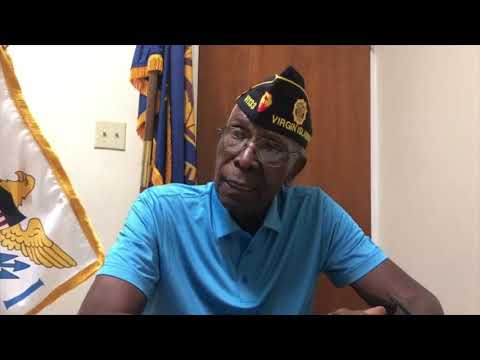
>> My name is Richard Augustus Schrader, Mr. Schrader. I went in the service in 1951, October. Basic training into Rogero, about 16 weeks, and then subsequently, some of my friends went to Korea. I went to Germany. I did a tour in Germany. I returned home in, what was it, ’53, around that time. Two years later, extended for 1 year, serving Losey Field 296 Infantry. 296, I believe, was in Losey Field, Puerto Rico. Volunteered to go to Korea. They sent me to Oklahoma. At Oklahoma, volunteered to go to Korea. They sent me back to Germany.
>> Well, why did you volunteer to go to Korea?
>> Well, the thing is that when we got back in … It was around 1953, and we met … Those that went to Germany met in Fort Dix. I think it was Fort Dix, New Jersey, and then later on, we caught the ship in New York, and there came the Korean troops. My buddy that trained with me, in basic training, and talking about war, and I’m young. I said, “Wow. Sounds good.” So I decided to extend it for 1 year and Puerto Rico. “I’ll check it out,” but then other thing too, I guess I was fortunate, boy, but a gentleman my first … was my captain commander in Germany in my first tour. And later on when I went, I think it was around ’54 or so, I then met him in Oklahoma, but he probably was a National Guard type when he came in and probably didn’t renew his category. Now he was a first sergeant. I ascended, and I went to. I right away recognized American, I said, “What are you doing? Why?” “I’m going to Korea.” “Okay.” A couple weeks later, I find myself and others back to Germany. I guess he was looking out for me. Right.
>> Well, because, you know, a lot of Americans died in Korea.
>> I do. Yes. Yes.
>> So God was looking out for you too. Well, let’s talk about some people you knew that did go to Korea.
>> Mm-hmm.
>> What did you … From what you heard in the news or what you read about, why do you even think the war was taking place in Korea?
>> Number one, I was quite young when I went in the army. I won’t say my years but quite young. And my brother served in World War II. So when he came home, even before he came home, my friends, myself, I grew up in a sugarcane estate. And we were practicing … I was young. Marching, stick my broomstick over my shoulder, up and down the estate. And so, Danny came home later on in the ’40s, and that was my motivation. These guys coming home. I remember distinctly when the war was over, my brother was serving in the Hawaiian island, and he came home that evening around 10, and one of these military trucks came into the estates and back up to our house, and here jumped a guy with his duffel bag and his uniform, and I remember wearing his cap and wearing his boots and things that I saw. So I was really conditioning and ready and really wanted to go join the service.
>> Joining the service, but what do you think was going on in Korea?
>> I already know there was … In Korea, I already knew there was a war in Korea. And my brother had served in the army, and I wanted to serve.
>> Even though you could maybe die?
>> That wasn’t in my mind. When you’re a young man and 16, that type doesn’t cross your mind, at least it didn’t mine.
>> Well, then you’re very, very fortunate, and God blessed you because I’ve met with many veterans who, at age 16, 17, 18, like you, they didn’t think they couldn’t possibility die in a war, but they saw a lot of their friends die.
>> Yes. Well, I served with a gentleman in Korea. A buddy of mine, same squad, Bumbebaho, Clarence, and he went to Korea. He made it through, but he was the first Virgin Islander to die in the war in Vietnam.
>> He went to Vietnam again after Korea?
>> Huh?
>> He went to Vietnam again after Korea?
>> After Korea, yes. He went to Korea. He was a real solider, gung ho. Bumbebaho. Yup.
>> And he came back and he shared some stories about the war?
>> I didn’t met him when he returned from the war. He lived in Saint Thomas, and then for a while, but I think he had moved and lived in the states and married and lived in the states. So I never saw him from the time when he first came back from Korea. Probably on the ship, yes. I saw him. But then later on, he reupped and went to the states, and later on went to Vietnam some years later, and then he died.
>> Were you born in Virgin Islands?
>> I was born right here in Saint Croix.
>> Mm. Tell us a little bit about, yeah, Saint Croix and being a Crucian, right?
>> Yes. Yes.
>> A Crucian. So you were born in 1930s.
>> Born in 1935.
>> 1935. I believe that the US granted citizenship to Virgin Islanders in 1927. So that was shortly after you were granted citizenship, yet you still wanted to salute the flag of a …
>> By the time I volunteered for the service we were citizens. Oh, sure. Citizenship came some time … I’ll have to check on that, but I know we were US citizens because the reason why I say this is that in the ’40s, when my brother and all those went to the war, there was a result of making an act by Congress and making the draft applicable to the Virgin Islands so that they can go. So this was in around ’43 or something like that. We were a citizen some years before. Yeah.
>> How do you feel about that? Meaning, what do you feel being part of the US territory?
>> Mm-hmm.
>> Do you feel like sometimes you’re second-class citizens?
>> Ah, yes. The way we’re treated. Number one, we can’t vote for president and things like that, so but all in all, I think we’re much better off being a citizen of United States than being a citizen of Denmark.
>> Really?
>> That’s my feeling.
>> Wow.
>> I suppose there’s a lot of improvement. Like I said, Virgin Islanders was actually serving the military World War I. Okay? A guy by the name of Ludwig Carrigan, he was in World War I because what people was migrating and going after their transfer from the Virgin Islands. And people, and even before people had went to the states and lived, you see? So he was experienced with the Virgin Islands, but he was in New York at the time, And he was in World War I. Here on the island after the transfer in 1917, the United States navy got young people to get into the service, make it possible for them to volunteer for the service to form the first Black naval band right here in Saint Croix. I’m talking about after the transfer. Right? I knew people that joined, I think, it was 1919, 1918. One of them comes to my mind because he was my friend, August McKay, and he died. He was 97 year old. Matter of fact, I wrote a story of him in one of my book. Another guy is Peter Tolung from here, and many more that was about … I had to be close, about 20, and also from Saint Thomas. You ever heard about Alton Adams? Do some research on him. He was the band leader. Matter of fact, his picture is in the museum in Washington D.C. I saw it.
>> You mentioned you wrote a book?
>> Books.
>> Wow.
>> Yeah.
>> What kind of books? I would love to read them.
>> Well, I first … Poetry is my first love. I’m a retired prison warden, and I started writing poetry 1 year before my retirement in 1984, and then, it turns into short stories, interviewing folks.
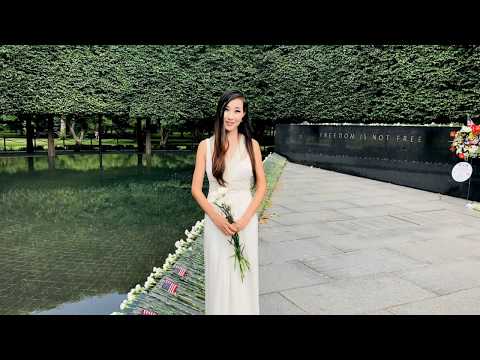
[ Chatter ]
>> Your name.
>> My name is Clint Denny, Woodrow F. Clint Denny Junior. You want date of birth?
>> Okay.
>> Five May 1936.
>> And when did you volunteer?
>> I volunteered for the Army in 1954, and I was drafted in 1955.
>> Mm.
>> I was sent back to school. I left school in ’54 after 12th grade for going into the army, and our recruiter was a local person that knows everybody, so he sent me back.
>> Why did you volunteer?
>> I had a problem with teacher. That’s what we used to do. If you have a problem with the teacher or the school, you go to the Army. That’s what they used to do. That was a popular thing.
>> But you didn’t end up going to war, thank goodness, right? So can you tell us a little bit about where you were stationed?
>> Yes, I was stationed at Fort Riley, Kansas. I’d been there for 2 years. They wouldn’t allow me to go overseas.
>> Why not?
>> Because of my educational background. They needed people in my field because during the Korean War, I don’t think they were ready to fight a war in Korea, so they grabbed what they had. So they had a lot of vacant positions that have to be filled. The military didn’t have the time to send anyone to school because those schools are 8 and 10 and 12 weeks. In the meantime, those companies are in limbo. So if you have a background that could suit their purpose, they hold you.
>> So what were you trained in?
>> Administration, bookkeeping, typing, shorthand, that kind of thing.
>> But you must have known some people who went to Korea in the States, right?
>> No, after … No, you see, they split us up. I don’t see you today, I don’t see you for the next 3 years. I don’t know where they went. I really don’t know.
>> Did you know he served in Korea?
>> That he served in Korea?
>> Mm-hmm.
>> I didn’t. Did you? No. That’s the wrong person. Uncle Sam held us back.
>> I didn’t serve in Korea. I served during the Korean War, but I spent all my time in Germany.
>> Oh, boy, we would have been close. I wanted to go to Germany, and I wanted to go. I was infantry, and I wanted to go. So what they did, they held me back in the States and changed my occupational specialty number to administration. I tried many times, and I never got out.
>> [INAUDIBLE]
>> I finished my obligation in there, and then I came out.
I went to the National Guard. There was no break in service, and I retired in 19 [INAUDIBLE] 35 years, that was it.
>> 1955, you went to states like Kansas. That’s a lot of …
>> Hmm?
>> That’s during a time when America was still growing, and we were experiencing a lot of, let’s just say, challenges.
>> And we still haven’t solved the Korean War crisis yet.
>> Yeah. What do you feel about that?
[ Chatter ]
>> What do you feel about that? It’s probably one of the longest wars.
>> Well, we are at war with Korea mentally.
>> Mm.
>> Yeah, we are because there’s no peace treaty. We still have Kim Korea to worry about. You know that.
>> What do you feel about the current peace process right now?
>> No. I don’t like it. I don’t like it. It’s leading to problems.
>> Mm.
>> It will lead to a lot of problems. I think as a nation, we’re asking for too much from the enemy, and when we do ask, there’s nobody to monitor anything. I can tell you, yes, I want to see it, but that don’t mean they’re doing it. Look what happened to Iran. They’ve been breaking these treaties all the time.
>> How about bringing back the remains?
>> Oh, well, I know that started already. They brought in about 56 bodies here this week, and we’re not even sure that they’re all our people. We’re not even sure about that, but they brought in some of them. That’s a long time, man. That’s a long time, man.
>> Eight thousand.
>> Well, I wouldn’t even bother with that. It’s a waste of time. You lost your life. You lost your life. It’s so long.
>> But I’ve met some families, and they’re still waiting.
>> Yeah, I know. I know. They’re still waiting for proof. Are they getting the right proof?
>> Not even about proof, maybe just hope.
>> Maybe some come back. You thinking they’ll get the right hope? Or you think they’re just getting stuff to make them feel good? That’s too long, man, too long.
>> It’s a long time to live with the anxiety.
>> It is. It is. It is too long.
>> But they don’t have closure, you know?
>> And as a matter of fact, they still have bodies from a year or two or five, 25, that they haven’t identified, and this is 2017, so, man, it’s a waste of time. It’s a waste of time.
